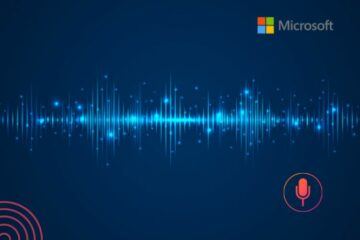Technology is rapidly changing education. Schools across all levels have adopted tools like remote learning and smartboards, and this technological revolution is far from over. Machine learning is starting to transform the sector.
These algorithms recognize trends and patterns in data, gleaning information humans may miss and improve themselves over time. You see machine learning every day in things like Alexa and social media algorithms, and now, it’s spreading into education.
Here are eight ways machine learning will impact education.
1. Automating Non-Teaching Tasks
One of the most basic but helpful ways machine learning will transform education is by automating non-teaching tasks. Teachers spend more than 50% of their time on things like scheduling and paperwork, giving them less time to focus on students.
Machine learning can handle the repetitive administrative work while you focus on what you do best as a teacher: teaching. That way, you avoid burnout and students get more attention, leading to better educational outcomes.
“Machine learning can automate administrative tasks to give teachers more time to focus on students.”
2. Monitoring Student Success
Machine learning algorithms can also analyze student records to assess their performance. They can use this data to predict outcomes, such as highlighting which students are at risk of dropping out.
With these insights, you can intervene and react to address issues before it’s too late. You can help at-risk students succeed in school and later in life.
3. Personalizing Lessons
Every student has a unique learning style, so different teaching methods will have various levels of efficacy for each pupil. Machine learning can analyze performance relating to lessons to determine what approaches work best for each child.
These technologies can then help you personalize lesson materials for each student. Educational outcomes will improve when everyone learns in the way that suits them best.
“Every student has a unique learning style, and machine learning can determine what works best for each child.”
4. Providing 24/7 Support
Chatbots are one of the most familiar examples of machine learning. You likely recognize them from customer service sites, but they can improve education, too. These bots can provide round-the-clock support for students who need help with their homework or have questions.
Chatbots can’t replace teachers, but they can answer simple questions and direct people to the resources they need. Learning apps like Duolingo already use machine learning this way, so schools could do the same.
5. Making Education More Accessible
Machine learning can also make education more accessible. Natural language processing (NLP) can automatically translate materials into different languages or provide closed captioning to help students with disabilities or non-native speakers understand lessons. Alternatively, AI could determine which credits are transferable, making it easier to switch schools or apply to universities.
6. Making Exams Fairer
Some institutions have started using NLP to score essays, saving time while removing any bias or distraction from the grading process. Applying this to more exam areas would help ensure grading is fairer, giving more students a better chance at success.
Similarly, machine learning could write fairer exams. Algorithms could adjust testing materials, even personalizing them, to match different learning styles or trends, appealing to a broader range of students.
“Machine learning can remove bias and distraction from grading while personalizing testing materials.”
7. Improving Security
More student data is put at risk as schools implement additional digital technologies. Machine learning can help mitigate those risks, enabling innovation while keeping kids’ information private.
Automated cybersecurity tools can monitor networks for suspicious activity, blocking potential breaches before accessing sensitive information. Similarly, they can learn how different users behave on school networks, recognizing when someone else might’ve hacked your account.
8. Accelerating Research
Machine learning can help higher education institutions expand their research projects. These tools can find connections between data points far faster and more accurately than humans, so they can help you discover new things quicker.
Applying machine learning to your research will give you more to teach others. The pace of human knowledge as a whole will accelerate, trickling down from higher education to elementary classrooms.
Machine Learning Is Transforming Education
Machine learning in education is still a relatively new phenomenon, but it already shows significant promise. Teachers, students and parents alike will benefit as these technologies improve and more schools implement them. The education system will become fairer, safer, more engaging and more effective.
Also, Read Will Machines Become More Artistic Than Humans
- AI
- ai art
- ai art generator
- ai robot
- AIIOT Technology
- artificial intelligence
- artificial intelligence certification
- artificial intelligence in banking
- artificial intelligence robot
- artificial intelligence robots
- artificial intelligence software
- blockchain
- blockchain conference ai
- coingenius
- conversational artificial intelligence
- crypto conference ai
- dall-e
- deep learning
- google ai
- machine learning
- plato
- plato ai
- Plato Data Intelligence
- Plato Game
- PlatoData
- platogaming
- scale ai
- Technology
- zephyrnet













